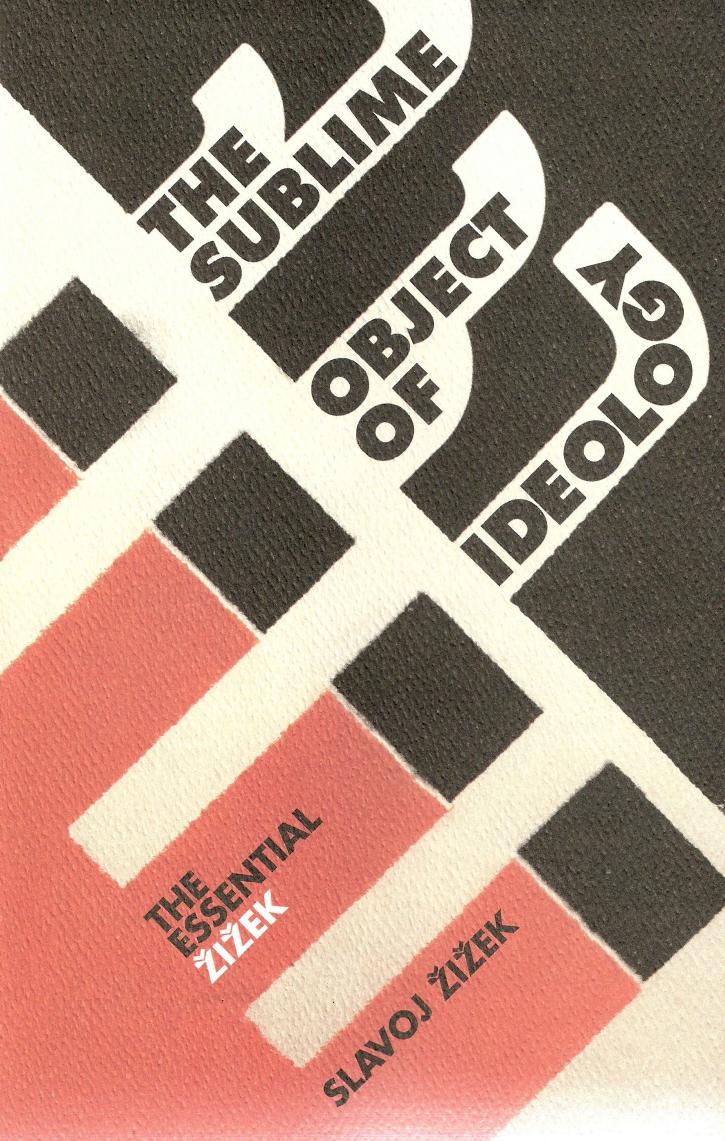The Sublime Object of Ideology by Slavoj Zizek

Author:Slavoj Zizek [Zizek, Slavoj]
Language: eng
Format: epub, pdf
Published: 0101-01-01T00:00:00+00:00
1 28
THE SUBLI M E O BJ ECT OF I D E O LOGY
Overtones of racism were easy to detect in this question, because it was
never raised about other candidates. The conclusion that we are here dealing with racism is further confirmed by the fact that this ' Che vuoi?' erupts most violently in the purest, so to say distilled, form of racism, in anti
Semitism: in the anti-Semitic perspective, the Jew is precisely a person
about whom it is never clear 'what he really wants' - that is, his actions
are always suspected of being guided by some hidden motives (the Jewish
conspiracy, world domination and the moral corruption of Gentiles, and
so on). The case of anti-Semitism also illustrates perfectly why Lacan put,
at the end of the curve designating the question ' Che vuoi?' the formula
of fantasy ($ 00): fantasy is an allfwer to this ' che vuoi?'; it is an attempt to
fill out the gap of the question with an answer. In the case of anti-Semitism,
the answer to 'What does the Jew want?' is a fantasy of'Jewish conspiracy':
a mysterious power of Jews to manipulate events, to pull the strings
behind the scenes. The crucial point that must be made here on a theoretical level is that fantasy functions as a construction, as an imaginary scenario filling out the void, the opening of the desire of the Other. by
giving us a definite answer to the question 'What does the Other want?',
it enables us to evade the unbearable deadlock in which the Other wants
something from us, but we are at the same time incapable of translating
this desire of the Other into a positive interpellation, into a mandate
with which to identify.
Now we can also understand why it has been the Jews who have been
chosen as the object of racism par excellence: is not the Jewish God the
purest embodiment of this ' Che vuoi?', of the desire of the Other in its
terrifying abyss, with the formal prohibition on 'making an image of God'
- on filling out the gap of the Other's desire with a positive fantasyscenario? Even when, as in the case of Abraham, this God pronounces a concrete demand (ordering Abraham to slaughter his own son), it remains
quite open what he really wants from it: to say that with this horrible
act Abraham must attest to his infinite trust and devotion to God is
already an inadmissible simplification. The basic position of a Jewish
believer is, then, that of Job: not so much lamentation as incomprehension,
'CHE VUOI?'
1 29
perplexity, even horror at what the Other (God) wants with the series of
calamities that are being inflicted upon him.
This horrified perplexity marks the initial, founding relationship of
the Jewish believer to God, the pact that God concluded with the Jewish
people. The fact that Jews perceive themselves as the 'chosen people' has
nothing to do with a belief in their superiority; they do not possess any
special qualities; before the pact with God they were a people like any
other, no more and no less corrupted, living their ordinary life - when
suddenly, like a traumatic flash, they came to know (through Moses .
Download
The Sublime Object of Ideology by Slavoj Zizek.pdf
This site does not store any files on its server. We only index and link to content provided by other sites. Please contact the content providers to delete copyright contents if any and email us, we'll remove relevant links or contents immediately.
The Secret History by Donna Tartt(19046)
The Social Justice Warrior Handbook by Lisa De Pasquale(12186)
Thirteen Reasons Why by Jay Asher(8892)
This Is How You Lose Her by Junot Diaz(6875)
Weapons of Math Destruction by Cathy O'Neil(6264)
Zero to One by Peter Thiel(5786)
Beartown by Fredrik Backman(5737)
The Myth of the Strong Leader by Archie Brown(5496)
The Fire Next Time by James Baldwin(5429)
How Democracies Die by Steven Levitsky & Daniel Ziblatt(5213)
Promise Me, Dad by Joe Biden(5141)
Stone's Rules by Roger Stone(5080)
A Higher Loyalty: Truth, Lies, and Leadership by James Comey(4950)
100 Deadly Skills by Clint Emerson(4919)
Rise and Kill First by Ronen Bergman(4778)
Secrecy World by Jake Bernstein(4740)
The David Icke Guide to the Global Conspiracy (and how to end it) by David Icke(4699)
The Farm by Tom Rob Smith(4502)
The Doomsday Machine by Daniel Ellsberg(4484)
